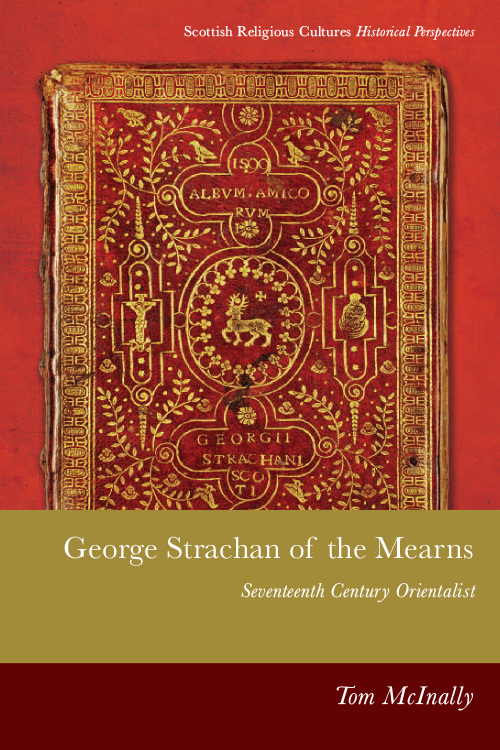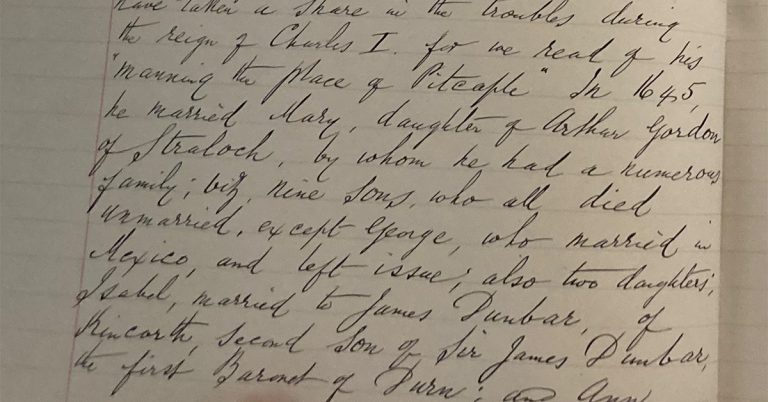
Biography is a dangerous genre for any historian. Inevitably it has to be set in the history of the subject’s time and place, but it is driven by the obsession engendered in the writer by the subject. This has been the case with me and my subject, George Strachan. He has caused me to research areas beyond my experience and, even more difficult for me, to try to understand his character.
Defying Labels
The challenge has been that George Strachan defies any attempt to put a label on him. Humanist scholar and neo-Latin poet would be an adequate description for many of his contemporaries but Strachan was also a conspirator, a spy and a prodigious traveller in late sixteenth and early seventeenth-century Europe. However, it is his life in the Middle East and India that makes him unique and renders labels meaningless.
Travels in the Middle East and India
George Strachan was in his forties and no longer a young man when he went to the Holy Land and Syria to study the languages and literature of the East. On his travels, which lasted twenty years, he became, among other incarnations, a ‘true Bedouin’, a trader with the East India Company and collector of an incomparable library of Arabic and Persian manuscripts. He sent over sixty volumes to Rome where their worth was recognised in the late seventeenth century by scholars who used Strachan’s translations and glosses to provide the West with its the first unprejudiced understanding of Islamic literature and translation of the Qur’ān. This work has helped ensure Strachan’s intellectual legacy but his pre-eminence as an oriental linguist has still to be fully recognised.
Not Just an Intellectual
Great as his achievements were, it is the man himself who has captured my interest. He was not a dry intellectual. Contemporaries described him as good company. But he was also a risk-taker whose recklessness verged on the foolhardy; a proud man with no small measure of personal vanity but riddled with contradictions. The youngest son of minor Scottish nobility, George Strachan accepted exile rather than renounce his Catholicism. To his death he remained staunchly Catholic. Even so his letters to the pope berated the pontiff’s lack of moral and financial support for Scots in general and Strachan in particular. He spoke with candour because, as he wrote to the cardinal protector of Scotland, everyone knew of ‘the truthfulness and honesty of Scottish people’. It was this ‘guid conceit o’ himsel’ that carried him through incredible difficulties. Telling a Bedouin emir to cut back on his use of his harem takes smeddum, but no more than that needed to negotiate hard terms with Shah Abbas the Great of Persia for English participation in a military campaign against the Portuguese.
A Full Life
He lived his life to the full and his last great adventure of trying to cross the Himalayas, while in his sixties, to negotiate with a hostile Tibetan king is typical of the man. Although I believe that my attempt at a biography has not done this remarkable man justice, I have had enjoyed trying.

Find out more
Tom McInally is an Honorary Research Fellow at the University of Aberdeen.
George Strachan of the Mearns: Seventeenth-century Orientalist is published in August 2020 in hardback and digital formats.
The series, Scottish Religious Cultures: Historical Perspectives, uncovers the history and legacy of Scotland’s religious traditions at home and abroad.






When did Strachan die and where? Did he return to Europe?
George Strachan died in 1635 in North West India where he was buried.